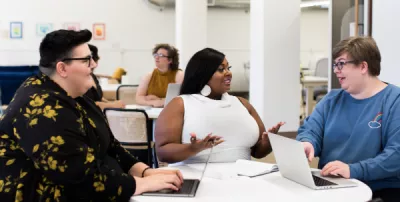Frequently asked questions


If we meet you on outreach or you call our office for some brief information, advice or support you can use your working name (or any name you would like to use) and we will not need to take any personal details.
However, if you’d like more support, we would need to take down and record some personal details (eg your name, date of birth, contact details) and any other relevant information in order to support you. This information will be kept on our secure database that only the Charis team have access to.
When we get these details from you we give you an information sheet about how we store people’s personal data and ask you to sign a form to allow us to do so. Feel free to ask us any questions you have about this. You can also request to see our full data protection policy if that would be of interest for you to see.
If you ask us to refer you into another service or speak to an agency on your behalf (such as housing, health or other support services) we will do this only with your signed consent and share only the information that is relevant.
We will only share information without consent if someone is at risk of serious harm.

We will not tell other people (outside of our Charis team) that we have seen you, the location of your work place, or share any information you tell us without your consent.
But, we have a legal duty to take action if:
This means if we think someone is at risk, we would talk to services who could help to safeguard you or the person who is at risk. We would always try to speak to you about this first if possible, before speaking to anyone.

Yes, we work with many people who were not born in the UK and English is not their first language.

Asking for support from an organisation that you haven't worked with before is such a brave thing to do, and we recognise that for some people it can also be pretty daunting.
So, we thought it might help if we laid out the process of how it works…
This is what would usually happen if you (or a professional you are working with) contact Charis asking for support:
For some people who contact Charis they just want to chat a couple of times and ask for some practical support and then don't contact us again.
Other people may want more on-going longer term support.

Many people who work in the sex industry are parents. We know that for many parents who are sex workers this can be a worry, and because of that many people worry about whether it is safe to talk to professional organisations or to report dangerous incidents at work to the police.
It is not illegal in England, Wales or Scotland for a consenting adult (age 18 or over) to sell sex, but law around the sex industry is complicated.
Many sex workers are great parents and there will not generally be cause for the local authority to intervene simply because you are a sex worker.
It is your responsibility to arrange for a responsible adult to look after your child/ children when you are working. As long as your child is not at risk of any harm then we, or other organisations you get help from, should have no reason to be concerned and would have no reason to share information about you or your children.
We want to be totally upfront with you though, so thought it might be helpful to say some of the things that we, or another organisation supporting you, may be concerned about and would make a child be seen as at “risk of harm”:

It is a criminal offence for a parent or carer to allow a child to live in or stay or visit anywhere that could be classed as a “brothel”. A brothel is classed as any premise (flat, house, building) where more than one person sells sexual services.
If you have anyone under the age of 18 living with you or regularly staying with you it is best to avoid seeing clients in your home. This is because it could expose your child to risks if there are strangers coming into the home.
Even if your child is never in the home when you work, it is worth thinking about possible risks of clients turning up uninvited, risks of stalking or harassment from clients or possible consequences if your child comes home unexpectedly or if there is a violent incident.
If it is at all possible, we will always aim to talk to you first about any concerns and support options before talking to other organisations.